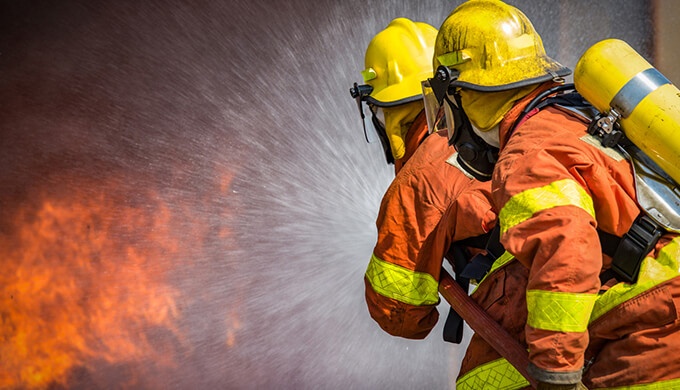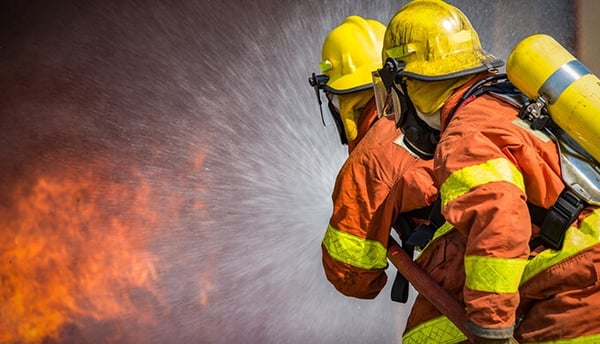Technology Fills the Revenue Cycle Skills Gap and Enhances Financial Performance
ResponderStrong Report: Mental Health & Emergency Responders
Suicide is now recognized as the leading occupational killer of emergency responders, according to a new report “Taking Care of Our Own: Mental Health Among Colorado Emergency Responders” released by ResponderStrong in collaboration with the National Mental Health Innovation Center.

Suicide is now recognized as the leading occupational killer of emergency responders, according to a new report “Taking Care of Our Own: Mental Health Among Colorado Emergency Responders” released by ResponderStrong in collaboration with the National Mental Health Innovation Center. The report includes interviews from emergency responder department leadership from police, sheriff, state patrol, fire, EMS and dispatch branches in Colorado.
“We were overwhelmed with the large number of responders to the survey; more than 55 percent of leadership from Colorado departments responded to the query of the survey,” said Rhonda Kelly, project manager for ResponderStrong during an interview with Colorado Public Radio’s (CPR) Colorado Matters.
Listen to her full interview with CPR
Report Findings: Lack of Access to Mental Healthcare & A Lot of Stigma Around Getting Help
According to the report, from 2004-2014, suicides for Colorado firefighters outpaced other line of duty deaths by 50 percent. The report authors recognized that while data for EMS and dispatch communities were not as thoroughly tracked, suicide is still recognized as a large issue for them as well.
What puts emergency responders at heightened risk for suicide? The report attributes the rise in suicides to “the number of high-profile mass casualty incidents in Colorado and the cumulative, daily exposures to stress and trauma have placed emergency responders at elevated risk for a range of adverse mental health impacts.” And in the responder culture, mental health is often not addressed proactively but rather in reaction to an adverse event, often a significant mass casualty event or a responder suicide.

Kelly said there were some shocking pieces of information in the report. “For example, only 11 percent of leaders believe that responders are comfortable talking about their own mental health,” she said. EMS leaders cited lack of funding for training and mental health support as well as a persistent mindset that mental health issues carry a stigma as challenges to facing the prevalent problem.
High-level report findings include:
- There is a need for day-to-day mental health support and training. Survey results find that resiliency during a crisis is dependent on daily mental preparedness as well as daily support systems to address smaller stressors that can overwhelm first responders.
- Agencies face consistent systemic barriers. Barriers include lack of departmental training; high out of pocket costs and lack of local counselors/psychologists; and not enough time allocated to training specifically focused on responder mental health.
- They also face consistent cultural barriers. Most leaders report that emergency responders in their departments are not comfortable talking about their own mental health, do not know how to recognize symptoms of mental health or substance abuse issues within themselves, and do not know how to seek help for a mental health or substance abuse problem.
The Report Identified the Challenges to Addressing Mental Health in EMS… What’s Next?
So how do we move forward in improving resources to help support the mental health of emergency responders? The report said that based on the current barriers, the approach must be collective, comprehensive and innovative. This includes leveraging:
- Regional peer support
- Telehealth-based mental healthcare, which has proven effective within other niches, including the military
- Innovative new training platforms including mobile and digital technologies like virtual reality
- Ongoing mental health components within training schedules
The report goes in to a lot more detail than this summary. For more information (statistics, quotes, etc.), I highly encourage you to take the time to read the report.
If you’re looking for additional resources on how to address mental health issues among your emergency responders, join us at SUMMIT where we’ll have several sessions focused on mental health in EMS.
Related Posts
Emotional Strain and Mental Health: Using ePCR Data to Transform the EMS Culture
Christa Lassen-Vogel, Senior Manager, ZOLL Data Systems | Jan 28, 2021
New Perspectives Call for New EMS Practices in 2021
Tim Nowak, Founder & CEO, Emergency Medical Solutions, LLC | Nov 2, 2020
ZOLL Pulse Blog
Subscribe to our blog and receive quality content that makes your job as an EMS, fire, hospital, or AR professional easier.
ZOLL Pulse Blog
Subscribe to our blog and receive quality content that makes your job as an EMS, fire, hospital, or AR professional easier.



